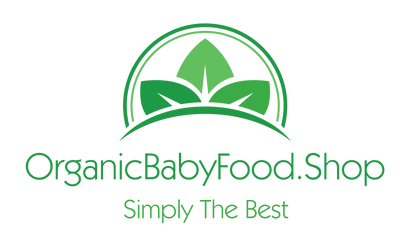
Is the higher price for organic food really worth it?
Many doubt whether the higher prices for organic products are really worth it. Is the higher price for organic food really worth it?
Our team at the Organic Baby Food Shop says "Absolutely!" and here is why:
There are many studies that prove the benefits of eating organic food versus normal food for both women during their pregnancy as well as babies. For example, a study published by EHP ( Environmental Health Perspectives) found that mothers who consumed non-organic food during their pregnancies gave birth to newborns with harmful toxins in their bodies, making them much more vulnerable to health problems in the future. To name just one danger, these very unhealthy chemicals increase the chances of developing neurological damages in babies that have been exposed to these chemicals for a longer period of time. The good news is, after switching to a 100% organic diet, the toxins disappeared from the babies’ bodies. Just based on this alone, we think that organic food and organic baby food really is worth it. But there are more reason, keep reading!
So why are non-organic products more dangerous?
Conventional farmers not only use pesticides to destroy diseases and pests but also inject their livestock with hormones such as estrogen, progesterone, testosterone and medicine that includes painkillers and antibiotics. This greatly influences the quality of their milk. Scientists found as many as 20 painkillers, antibiotics and chemicals in a single glass of non-organic milk. These pesticides, hormones and harmful meds are then passed to our babies’ bodies through the consumption of the milk.
Do organic farmers use pesticides?
They do, but the pesticides come from natural sources such as certain types of plants. Organic farmers such as Holle’s are prohibited from using artificial fertilizers, synthetic chemical pesticides and any external alteration through chemicals in their animals. Holle’s organic farmers reach their quality through natural animal care, raising their cows biodynamically, in small herds and only eat a diet naturally rich in organic hay and greenery.
This form of husbandry ensures that the cows are strong and healthy. The natural way in which Demeter-certified cows are raised greatly influences the nutritional value of their milk. Biodynamic milk has a high vitamin E and beta-carotene content. It is also naturally high in essential omega 3 and omega 6 fatty acids and of course are chemical and hormone free.
Our conclusions:
Organic baby food can be more expensive than non-organic baby food, but it limits babies' exposure to very harmful chemicals and hormones during the most sensitive time of their lives, preventing illness in the future. Organic baby food is also richer in nutrients, vitamins, Omega 3 and 6 and beta carotene content. So independently if you choose to go organic due to environmental concerns and a desire to avoid pesticide residue and chemicals, your baby’s health will benefit from it greatly now and in the future. After reading this, what do you think? Is organic food worth the higher price?
Please let us know if you have questions about any of our organic formulas and milk, we will be happy to share our knowledge with you.
Leave a comment
Comments will be approved before showing up.
Also in Organic Baby Food Shop Blog

Troubles With Latching

Breast vs Bottle: How to Navigate Guilt Surrounding Feeding Choices

Differences Between Holle Pre Formula & Holle Stage 1
Being able to compare and contrast the differences between various organic baby formulas is key for finding the one that is right for your baby. Taking into consideration your baby’s developmental needs, along with the nutrient contents in a specific formula, is a great place to start! If you are trying to decide specifically whether the European Holle Pre Formula or Holle Stage 1 would be best suited for your baby, here are some points to consider.
